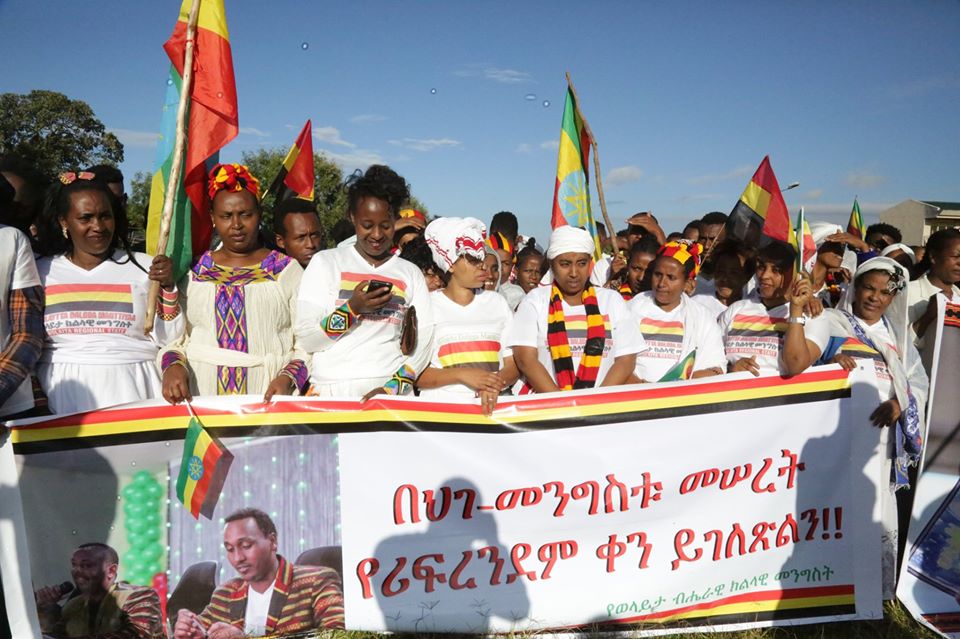The main Ethiopian opposition party Ezema joined boycott of results by eight parties in Wolayta while revealing alleged election fraud in Konso.
The Ethiopian Citizens for Social Justice party, known locally with nickname Ezema, is contesting the 2021 election results in several Woredas and Zones of the south as reports of widespread fraud mount. In several cases, the National Election Board of Ethiopia (NEBE) has confirmed the irregularities and has blamed local administrations for the problems.
In Wolayta, the Ezema joined other opposition parties who cited the election fraud, including the popular Wolayta National Movement (WNM) nicknamed “Gotara” and the Wolayta People Democratic Front (WPDF) nicknamed Gaamuwa. In total eight parties signed the complaint to NEBE, effectively disqualifying the result there.
The eight parties jointly said opposition observers were banned in most polling areas and in other places admitted later in the day. Even those allowed in were then removed by the police right before the counting and later pressured to sign the results that they did not oversee. When they refused, some were assaulted and detained.
Even before election day, an Awasa Guardian (AG) source said there were many signs of trouble to come in the zone, including illegal voting cards being handed out through out Wolayta: both by the ruling party and local opposition activists. But, critics and most observers assumed proper ID verification and other measures would resolve matters by election day. However, with officials obstructing opposition observers during election day, voters are now left with no confidence in the results.
Many voters AG contacted said they still have trust in the NEBE upper management resolving the matter in the next few days, as most blame the local Prosperity Party officials for the crisis. However, the local administration Thursday released several long incarcerated opposition activists and former zone leaders, which critics believe is a diversion tactic to calm the public and distract it from the widespread election fraud.
This crisis is expected to increase tensions in the Wolayta zone where the election was expected to be one of the most competitive rural election in the country. The opposition forces themselves are very diverse, some pushing for ethnic right and autonomy, while others advocate for individual rights and citizen based politics. As it is the case nationwide in Ethiopia, there are also Wolayta groups who have land grievances with Sidama as well as Wolayta politicians along the border with Gamo, who claim parts of Kucha Woreda historically belonging to Wolayta.
The Ezema opposition has also sent major complaints on election problems in Konso zone, where its observers were removed from voting stations by local officials. While the whole zone was affected, the crisis was more prevalent in Karat zuria woreda where Ezema observers were banned and opposition voters randomly disqualified.
 (Image: Election Complaint signed by eight opposition parties)
(Image: Election Complaint signed by eight opposition parties)
These crisis in some parts of the south occurred as the opposition unexpectedly lost in some major cities, including in Addis Ababa. The elections there were not disputed by the opposition and deemed to be free & fair, however the ruling party was able to win with small margins as opposition votes were split into pieces. In many cases, the Ezema and other opposition groups including the Balderas for Democracy party, weakened and divided votes from each other, despite having the same ideological platform that opposes the ethnonationalism platform of the PP ruling party.
While elections in most other parts of the country were credible, there were also reports of isolated accidents in Afar and delayed voting in other parts of the country.




